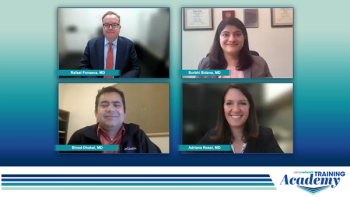
Binod Dhakal, MD, presents the case of a 66-year-old patient with IgG kappa multiple myeloma, and the panel discusses treatment considerations and decisions.

Your AI-Trained Oncology Knowledge Connection!


Binod Dhakal, MD, presents the case of a 66-year-old patient with IgG kappa multiple myeloma, and the panel discusses treatment considerations and decisions.
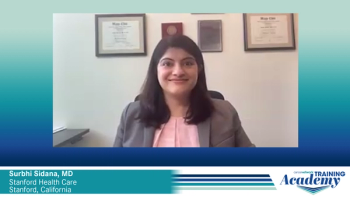
Surbhi Sidana, MD, provides clinical insights on treatment sequencing strategies for patients with relapsed/refractory multiple myeloma.

Myeloma specialists discuss clinical trials investigating CAR T-cell therapies in patients with relapsed/refractory disease.

The panel discusses recent updates on bispecific antibodies for patients with relapsed/refractory multiple myeloma, highlighting studies investigating talquetamab, teclistamab, and elranatamab.

A panel of experts on multiple myeloma introduce themselves and discuss recent CAR T-cell therapy approvals in earlier treatment lines for patients with relapsed/refractory disease.
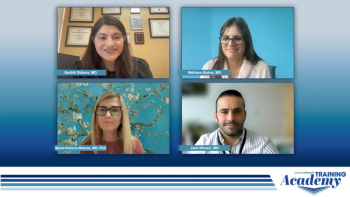
The panel looks to the future of relapsed/refractory multiple myeloma treatment and the remaining unmet needs for patients.

Experts review recent data on non-BCMA-targeting bispecifics for the treatment of R/R MM.

The panel discusses how non-BCMA-targeting bispecifics might be selected and sequenced in MM.
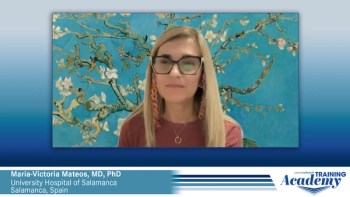
Maria-Victoria Mateos, MD, PhD, presents the case of a 52-year-old patient with penta-exposed MM who receives treatment with a non-BCMA-targeting bispecific.

Dr Maria-Victoria Mateos shares her expert perspectives on current efficacy and safety data on combination strategies with bispecifics in relapsed/refractory MM.

The panel discusses how they would approach the treatment of a patient with relapsed/refractory MM who progresses on BCMA-targeting bispecifics.
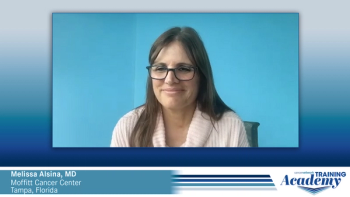
Melissa Alsina, MD, presents the case of a 39-year-old patient with multiple myeloma who has disease progression after initially responding to teclistamab.

The panel shares their experiences with the sequencing of BCMA-targeting therapies in MM, with particular focus on treatment of patients who progress on CAR T-cell therapy with teclistamab.
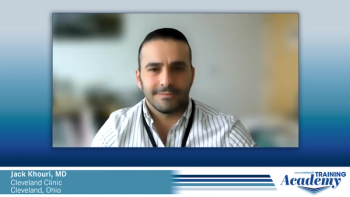
Dr Jack Khouri highlights recent data updates on other BCMA-targeting bispecific antibodies that are in clinical development in multiple myeloma.

Maria-Victoria Mateos, MD, PhD, reviews how she manages the side effects of teclistamab, including cytokine release syndrome, in patients with relapsed/refractory multiple myeloma.

Melissa Alsina, MD, explains the mechanism of action, data updates and dosing schedule of the BCMA-targeting bispecific antibody teclistamab.
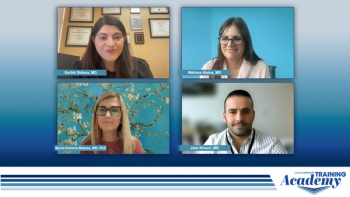
The panel discusses their potential treatment approaches for the presented patient case and how they select patients with relapsed/refractory MM for teclistamab and optimally sequence therapies.

Jack Khouri, MD, presents the case of a 68-year-old patient with relapsed/refractory multiple myeloma and extramedullary disease treated with teclistamab.
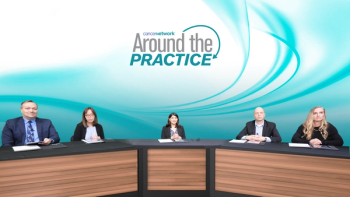
Closing out their discussion, the panel highlights unmet needs in multiple myeloma that clinicians and patients still face.

Drs Cowan and Anderson review whether older agents such as isa-based regimens still have a place in R/R MM treatment after the introduction of bispecific agents and CAR-T therapy.

Dr Silbermann continues her discussion of BCMA-targeting agents with a look at data on the use of bispecific agents for R/R MM treatment after a patient has already received a BCMA therapy.

Key opinion leaders compare the overall benefits of CAR-T therapy and share some advice for managing the toxicities of CAR-T therapy as a patient transitions back to their local doctor.

Drs Sidana and Silbermann describe the currently available treatment options for early- and late-relapse MM, and how to select an appropriate regimen.

An explanation of the mechanism of action of bispecific antibodies and their use in relapsed/refractory multiple myeloma treatment.

Dr Caitlin Costello discusses how she adapts treatment to patients with transplant-ineligible NDMM based on fitness level, and why some patients receive doublet therapy.

Experts explain their approaches to maintenance therapy for patients with transplant-ineligible NDMM and when therapy should be reduced.

Dr Larry Anderson summarizes the study design and updated data of the MAIA trial, and Dr Rebecca Silbermann compares it against the SWOG 0777 trial.

Andrew Cowan, MD, presents the results of the ENDURANCE study comparing two triplet regimens in transplant-ineligible MM.

Caitlin Costello, MD, describes how to determine if a patient with MM is transplant-ineligible, and some factors to take into consideration when choosing a treatment regimen.

The panel explains their opinions on induction therapy approaches for high-risk and standard-risk patients with NDMM.